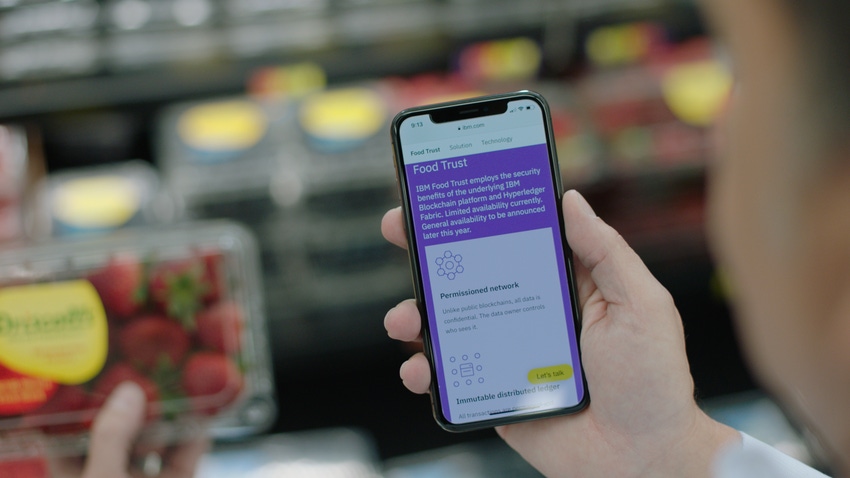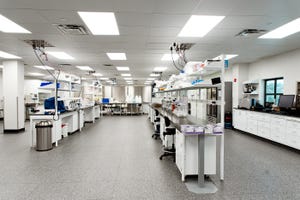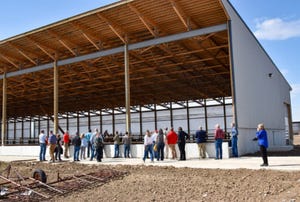Albertsons joining blockchain-based IBM network, conducting pilot
Grocer is latest company to adopt blockchain-based traceability system.

Albertsons Companies, one of the largest food and drug retailers in the U.S., is joining the blockchain-based IBM Food Trust network, one of the largest and most active non-crypto blockchain networks in production today, and will begin piloting the technology to improve how food is traced from farm to store shelf.
The addition of Albertsons to the Food Trust ecosystem of more than 80 brands brings blockchain-based food traceability to more consumers and industry players – from producers to suppliers to retailers – by helping enable greater transparency and collaboration and, ultimately, a safer food supply.
According to IBM, the growing number of participants using the technology helps address a broad range of food system issues, such as supply chain efficiency, freshness, waste reduction, sustainability and participants' ability to verify certifications, such as fair trade and organic.
“It is being used to make the end-to-end food ecosystem more transparent and trustworthy and has the potential to transform broad, nationwide food recalls into efficient, precise eliminations of recalled products. Already, more than 5 million food products digitized on the solution are on retail shelves,” the company said.
Albertsons, which operates nearly 2,300 stores across the U.S., will pilot Food Trust for tracing bulk romaine lettuce from one of its distribution centers and then will explore expanding to other food categories throughout its distribution network. The company plans to pilot the solution to help overcome the obstacles that have existed when a traceback is initiated for a product like romaine and is evaluating ways to use the technology to highlight the provenance of its extensive Own Brands portfolio.
"Blockchain technology has the potential to be transformational for us as we further build differentiation on our fresh brand," Albertsons chief information officer Anuj Dhanda said. "Food safety is a very significant step. In addition, the provenance of the products enabled by blockchain — the ability to track every move from the farm to the customer's basket — can be very empowering for our customers."
Jerry Noland, vice president of food safety and quality assurance for Albertsons, said, "Multiple high-profile consumer advisories from the Centers for Disease Control & Prevention and the Food & Drug Administration demonstrate the need to find more efficient ways of tracing products and identifying likely sources of contamination in a timely manner. Consequently, retailers are exploring new technologies to improve the infrastructure that underpins the global food supply chain."
IBM explained that a blockchain network is strongest when it includes multiple, diverse members that form a transacting ecosystem. That is why the solution can enable an ecosystem of companies from across the food industry to onboard and share data.
“Already, members are recommending or mandating that their supply chain partners, such as downstream suppliers, join the network,” the company said, adding that this is intended to bring a more complete view of the entire lifecycle of a food product.
"Establishing IBM Food Trust and opening it to the food ecosystem last year was a major milestone in making blockchain real for business," said Raj Rao, general manager of IBM Food Trust. "Today, we are focused on ensuring that the solution scales and is accessible to participants across the food ecosystem, such as Albertsons Companies. By bringing more members into the network and enabling them to share greater cross-sections of data in a secured environment, we believe our vision of a transformed food ecosystem using blockchain is closer than ever."
About the Author(s)
You May Also Like





